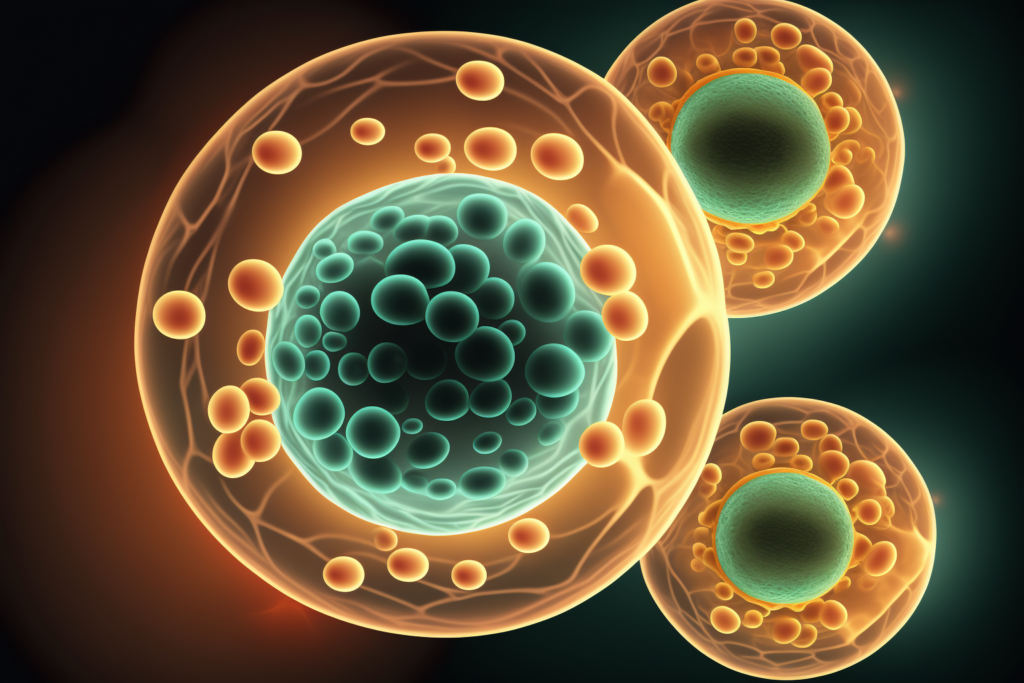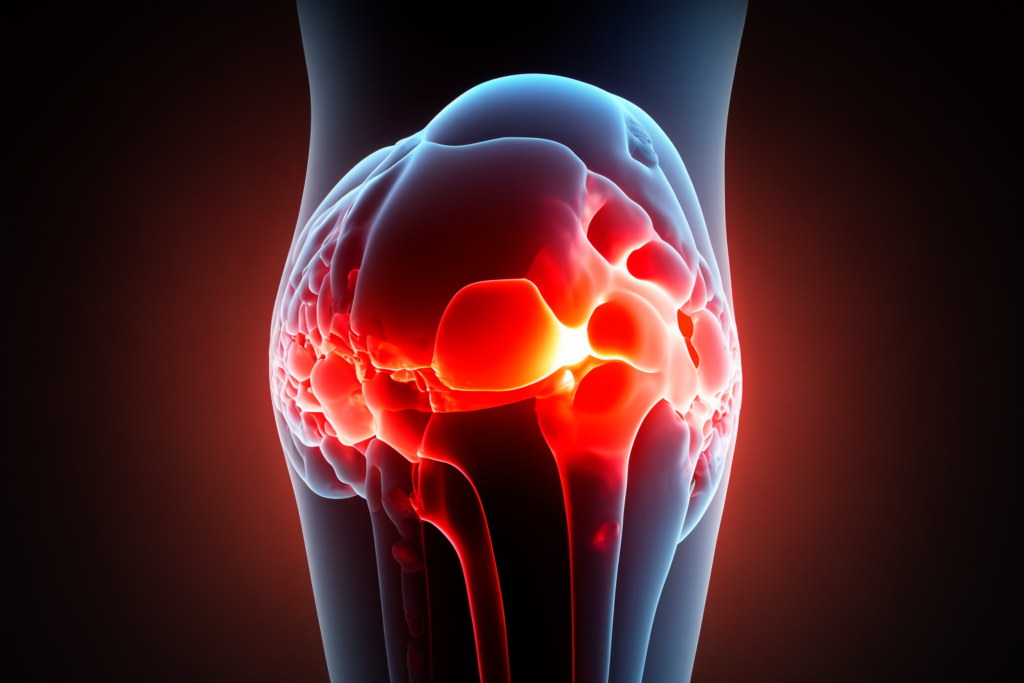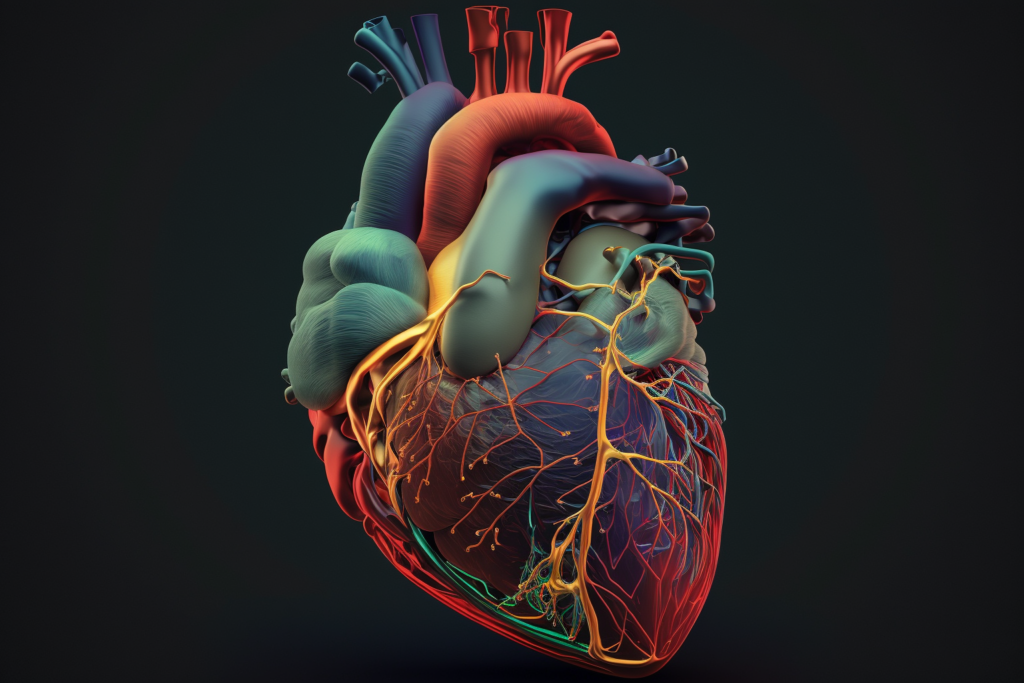
What are Adult Stem Cells?
The Definition of Adult Stem Cells
Adult stem cells are undifferentiated cells that can divide and differentiate into a range of specialized cell types.
These cells can be found in many tissues throughout the body, including bone marrow, adipose tissue, and blood.
How Do Adult Stem Cells Work?
Adult stem cells work by replacing or repairing damaged cells within the body
Adult stem cells are a type of undifferentiated cell found in various tissues and organs of the body.
These cells are capable of self-renewal, meaning they can divide and create more stem cells, as well as differentiate into specialized cell types.
One of the most significant functions of adult stem cells is their ability to replace or repair damaged or diseased cells in the body.
When tissues or organs are damaged, adult stem cells are activated to replace the damaged or lost cells. They migrate to the site of injury or disease and differentiate into the specific cell types needed to replace the lost or damaged tissue.
For example, if a person has a heart attack, adult stem cells in the heart muscle can differentiate into new heart muscle cells to replace the damaged ones.
They also have the ability to repair damaged cells without replacing them. In this case, the stem cells release growth factors and cytokines that stimulate the repair of damaged cells. For example, adult stem cells in the liver can release factors that stimulate the regeneration of damaged liver cells.
The use of adult stem cells in regenerative medicine has shown great promise for the treatment of a variety of diseases and injuries. Because these cells are obtained from the patient’s own body, there is no risk of rejection or ethical concerns associated with the use of human embryonic stem cells.
Adult stem cells also have anti-inflammatory properties that can help reduce inflammation and promote healing
In addition to their ability to replace and repair damaged cells, they also possess anti-inflammatory properties that can aid in the healing process.
When tissues become inflamed, it can lead to damage and impairment of their normal function. Adult stem cells can help reduce inflammation and promote healing by regulating the immune response.
Studies have shown that these cells can suppress the activation of immune cells, which are responsible for initiating and maintaining an inflammatory response.
By suppressing the activation of immune cells, adult stem cells can reduce the production of inflammatory cytokines, which are molecules that contribute to the inflammatory response. This, in turn, can lead to a reduction in tissue damage and promote the healing of damaged tissues.
Moreover, these cells can also secrete anti-inflammatory molecules such as IL-10 and TGF-beta, which can help reduce inflammation and promote tissue repair. These molecules can inhibit the production of inflammatory cytokines and activate the production of anti-inflammatory cytokines, thereby regulating the immune response and promoting healing.
The anti-inflammatory properties of adult stem cells have potential therapeutic applications in the treatment of various inflammatory diseases, such as arthritis, multiple sclerosis, and inflammatory bowel disease.
By reducing inflammation and promoting healing, these awesome cells could offer a promising alternative or complementary therapy to traditional treatments that focus solely on symptom management.
The Benefits of Adult Stem Cell Therapy

Conditions Treated by Adult Stem Cell Therapy
Adult stem cell therapy is a rapidly developing field of regenerative medicine that has shown promising results in treating a wide range of medical conditions.
Replace or Repair Damaged Tissue
Adult stem cells have the remarkable ability to replace or repair damaged tissue in the body.
When tissues or organs are damaged, these stem cells are activated and migrate to the site of injury, where they differentiate into specialized cells to replace the damaged ones. This process can lead to the regeneration of healthy tissue and the restoration of organ function.
One example of adult stem cells being used to replace damaged tissue is bone marrow transplantation. In this procedure, the cells from a donor are transplanted into a patient to replace their own damaged or destroyed bone marrow.
The transplanted stem cells can differentiate into various blood cell types and restore the patient’s blood cell production.
Another example of adult stem cells being used to repair damaged tissue is in the treatment of heart disease (more details about this a little further down the page).
Similarly, adult stem cells have also shown promise in the treatment of spinal cord injuries. In animal studies, stem cells transplanted into the site of a spinal cord injury have been able to differentiate into neural cells and promote the regeneration of damaged nerve tissue.
Repair Damaged Cartilage
Adult stem cells have shown promising results in the repair of damaged cartilage, making them a potential therapeutic option for the treatment of conditions such as osteoarthritis.
Cartilage is a connective tissue that lines the joints and provides cushioning and support for bones. When cartilage is damaged, it can lead to pain, stiffness, and reduced mobility.
One approach to repairing damaged cartilage using adult stem cells is autologous chondrocyte implantation (ACI). In this procedure, stem cells are harvested from the patient’s own body, typically from the bone marrow or adipose tissue.
The stem cells are then grown in a laboratory and differentiated into chondrocytes, which are the cells that produce cartilage.
The differentiated chondrocytes are then implanted into the site of the damaged cartilage, where they can integrate into the surrounding tissue and promote the repair of damaged cartilage. ACI has shown promising results in clinical trials, with patients experiencing reduced pain and improved mobility following the procedure.
Another approach to repairing damaged cartilage using adult stem cells is through mesenchymal stem cell (MSC) therapy. MSCs are a type of adult stem cell that can differentiate into various cell types, including chondrocytes.
MSC therapy involves the injection of mesenchymal stem cells directly into the site of the damaged cartilage. Once injected, the mesenchymal stem cells can differentiate into chondrocytes and promote the repair of damaged cartilage.
MSC therapy has also shown promising results in clinical trials, with patients experiencing reduced pain and improved mobility following the procedure. However, further research is needed to determine the long-term effectiveness and safety of mesenchymal stem cells for the treatment of damaged cartilage.
Treating Heart Disease

Adult stem cells have shown promising results in the treatment of heart disease, a leading cause of morbidity and mortality worldwide.
Heart disease can result from damage to the heart muscle, leading to reduced function and an increased risk of heart failure. Adult stem cells offer a potential therapeutic option for the repair of damaged heart tissue and the restoration of normal heart function.
One approach to using this type of stem cells for the treatment of heart disease is through the transplantation of autologous stem cells.
In this procedure, adult stem cells are harvested from the patient’s own body, typically from the bone marrow or adipose tissue. The stem cells are then purified and differentiated into heart muscle cells before being transplanted into the damaged heart tissue.
Studies have shown that this approach can lead to the regeneration of damaged heart tissue and the improvement of heart function in patients with heart disease. In some cases, the transplanted stem cells can differentiate into heart muscle cells and integrate into the surrounding tissue, promoting the repair of damaged tissue and restoring normal heart function.
Another approach to using these types of stem cells for the treatment of heart disease is through the transplantation of allogeneic stem cells. In this procedure, adult stem cells are obtained from a donor and transplanted into the patient’s damaged heart tissue. The transplanted stem cells can differentiate into heart muscle cells and promote the regeneration of damaged tissue, leading to improved heart function.
Clinical trials using allogeneic stem cells have shown promising results, with patients experiencing improvements in heart function and reduced symptoms of heart failure. However, there are still some concerns regarding the immune response and potential rejection of allogeneic stem cells, and further research is needed to fully understand the long-term effectiveness and safety of this approach.
Treatment of Autoimmune Disorders
Adult stem cells have shown promise in the treatment of autoimmune disorders, which occur when the immune system mistakenly attacks healthy cells and tissues in the body. These disorders can result in chronic inflammation, tissue damage, and impaired organ function.
Adult stem cells offer a potential therapeutic option for the treatment of autoimmune disorders by modulating the immune response and promoting tissue repair.
One approach to using adult stem cells for the treatment of autoimmune disorders is through the transplantation of autologous stem cells. In this procedure, the cells are harvested from the patient’s own body, typically from the bone marrow or adipose tissue. The stem cells are then purified and transplanted back into the patient’s body, where they can differentiate into various cell types and promote tissue repair.
Studies have shown that this approach can lead to a reduction in inflammation and improved tissue repair in patients with autoimmune disorders such as multiple sclerosis, lupus, and rheumatoid arthritis.
The transplanted stem cells can differentiate into cells that promote tissue repair and modulate the immune response, leading to a reduction in inflammation and improved organ function.
Another approach to using adult stem cells for the treatment of autoimmune disorders is through the transplantation of allogeneic stem cells.
In this procedure, the needed cells are obtained from a donor and transplanted into the patient’s body. The transplanted stem cells can differentiate into cells that promote tissue repair and modulate the immune response, leading to a reduction in inflammation and improved organ function.
Clinical trials using allogeneic stem cells have shown promising results, with patients experiencing a reduction in disease activity and improved organ function. However, there are still some concerns regarding the immune response and potential rejection of allogeneic stem cells, and further research is needed to fully understand the long-term effectiveness and safety of this approach.
Cosmetic Purposes

Adult stem cells have been touted as a potential tool for cosmetic purposes, with claims that they can rejuvenate the skin and reverse the signs of aging.
While some cosmetic products marketed as containing stem cells do exist, the scientific evidence supporting their effectiveness is limited, and their safety and long-term effects are still being studied.
One approach to using these stem cells for cosmetic purposes is through the use of stem cell-based creams and serums. These products claim to contain stem cells that can promote the growth of new skin cells and reduce the appearance of fine lines and wrinkles. However, there is little scientific evidence to support these claims, and the safety and long-term effects of these products are still being studied.
Another approach to using adult stem cells for cosmetic purposes is through the use of stem cell-based cosmetic procedures. These procedures involve the injection of stem cells, either from the patient’s own body or from a donor, into the skin.
The idea is that the injected stem cells will differentiate into new skin cells, leading to a rejuvenated and more youthful appearance.
While some studies have shown promising results with this approach, there are still many unknowns regarding its effectiveness and safety. It is important to note that injecting stem cells into the skin is still a relatively new and experimental procedure, and the long-term effects are still unknown.
Furthermore, there are also ethical concerns regarding the use of stem cells for cosmetic purposes, particularly in the case of using embryonic stem cells. While adult stem cells do not pose the same ethical concerns, the use of stem cells for cosmetic purposes raises questions about the prioritization of aesthetics over medical needs.
Advantages of Adult Stem Cell Therapy
Adult stem cell treatment offers many advantages over traditional medical treatments, making it an attractive option for patients with various medical conditions.
Minimally Invasive With Minimal Recovery Time
One of the most significant advantages of adult stem cell therapy is that it is a minimally invasive procedure with minimal recovery time.
Unlike invasive surgeries or procedures that require long recovery times, adult stem cell therapy involves harvesting the patient’s own stem cells and injecting them back into the affected area.
This results in a shorter recovery time, with many patients able to resume normal activities within a few days.
Uses Patient’s Own Cells
Another significant advantage of adult stem cell therapy is that it uses the patient’s own cells, reducing the risk of rejection or infection.
Unlike traditional medical treatments that often rely on drugs or procedures that can have negative side effects, adult stem cell therapy uses the patient’s own cells, which are more easily accepted by the body.
This means that there is a lower risk of rejection or infection, making it a safer and more effective treatment option for many patients.
Highly Targeted Treatment Option
In addition to these benefits, adult stem cell therapy is also a highly targeted treatment option.
Adult stem cells can be injected directly into the affected area, providing a highly localized treatment that is tailored to the patient’s specific needs.
This makes it a more effective and precise treatment option compared to traditional medical treatments that may have a broader impact on the body.
Reduce the Need for Long-Term Medication
Another advantage of adult stem cell therapy is that it can potentially reduce the need for long-term medication or other treatments.
This can result in significant cost savings for patients and reduce the burden of managing chronic medical conditions.
Overall, adult stem cell therapy offers many advantages over traditional medical treatments, making it a promising tool for regenerative medicine.
The Cost of Adult Stem Cell Therapy

Factors that Affect the Cost of Adult Stem Cell Therapy
Adult stem cell therapy is a promising tool for regenerative medicine, but it can come with a high cost.
Several factors can affect the cost of adult stem cell therapy, including the type of procedure, the number of cells required, and the location of the treatment center.
Type of Procedure & Number of Cells Required
The cost of adult stem cell therapy can vary depending on the type of procedure being performed.
Different types of procedures may require different amounts of stem cells or different techniques for administering the stem cells.
For example, bone marrow transplants typically require a larger number of stem cells, which can increase the cost of the procedure.
Similarly, more complex procedures, such as those involving multiple injections or surgeries, may also have a higher cost.
Location of Treatment Center
The location of the treatment center can also impact the cost of adult stem cell therapy.
Different regions or countries may have varying costs of living or healthcare costs, which can affect the overall cost of the procedure.
Additionally, some treatment centers may have higher fees for specialized services or equipment, which can also add to the cost of the procedure.
Insurance Coverage
Another factor that can affect the cost of adult stem cell therapy is insurance coverage.
While some insurance plans may cover the cost of adult stem cell therapy, others may not. This can result in significant out-of-pocket costs for patients, which can add to the overall cost of the procedure.
Is Adult Stem Cell Therapy Worth the Cost?
Adult stem cell therapy can be a costly procedure, and many patients may wonder if it is worth the investment.
While the cost of adult stem cell therapy may be high, it can be a worthwhile investment for patients who have exhausted other treatment options.
Adult stem cell therapy offers a targeted and precise treatment option that can provide long-lasting relief from chronic medical conditions, such as joint pain or heart disease.
In addition to providing relief from chronic medical conditions, adult stem cell therapy may also offer long-term cost savings.
While the initial cost of the procedure may be high, it may be offset by a reduction in the need for long-term medication or other treatments.
For example, patients with joint pain who receive adult stem cell therapy may be able to avoid costly joint replacement surgeries or ongoing medication costs.
Similarly, patients with heart disease who receive adult stem cell therapy may be able to avoid costly hospitalizations or ongoing medication costs.
The potential cost savings of adult stem cell therapy can also extend beyond the individual patient. For example, reducing the need for long-term medication or hospitalizations can result in cost savings for insurance companies and healthcare systems.
This can result in lower overall healthcare costs, which can benefit society as a whole.
Success Rates of Adult Stem Cell Therapy
How Successful is Adult Stem Cell Therapy?
Adult stem cell therapy has shown promising results in the treatment of various medical conditions, but the success rate of the procedure can vary depending on the type of procedure and the condition being treated.
Some studies have reported success rates of over 80% for certain conditions, while others have reported lower success rates.
The success rate of adult stem cell therapy is highly dependent on the condition being treated.
Some conditions, such as joint pain or heart disease, have shown high success rates with adult stem cell therapy.
However, the success rate of adult stem cell therapy can vary depending on the type of procedure being performed.
Different types of procedures may have different success rates depending on the technique used or the number of stem cells required.
For example, bone marrow transplants typically have higher success rates compared to other types of procedures.
While some studies have reported high success rates for adult stem cell therapy, other studies have reported lower success rates.
This may be due to a variety of factors, including differences in the patient population, the type of procedure being performed, or the method of measuring success.
Additionally, adult stem cell therapy is still a relatively new field of regenerative medicine, and more research is needed to fully understand its potential and limitations.
Factors that Influence the Success of Adult Stem Cell Therapy
Several factors can influence the success rate of adult stem cell therapy, such as the age and overall health of the patient, as well as the severity of the condition being treated.
Additionally, the quality and quantity of the stem cells used in the procedure can impact the outcome.
Experienced and qualified stem cell professionals can help ensure optimal success rates.
Overall, adult stem cell therapy has the potential to offer real relief for many conditions and may be worth considering as an alternative or complementary treatment option.
Risks of Adult Stem Cell Therapy
What are the Risks of Adult Stem Cell Therapy?
While adult stem cell therapy has shown promise in treating various medical conditions, it is not without risks. There are several potential risks associated with adult stem cell therapy that patients should be aware of before considering the procedure.
Infection Risk
One of the main risks of adult stem cell therapy is infection. During the harvesting and processing of stem cells, there is a risk of contamination, which can lead to infections.
Additionally, the injection of stem cells can also increase the risk of infection, particularly if the injection site is not properly sterilized.
Patients receiving adult stem cell therapy should be closely monitored for signs of infection, such as fever, redness, or swelling at the injection site.
Development of Tumors
Another potential risk of adult stem cell therapy is the development of tumors. While adult stem cells are generally considered safe, there is a risk that they can develop into cancerous cells if they are not properly controlled.
This risk is particularly high for patients who receive large numbers of stem cells or who have underlying genetic mutations that increase the risk of cancer.
Allergic Reactions
In addition to these risks, there is also a risk of allergic reactions to the stem cells themselves or to other materials used during the procedure, such as anesthesia or preservatives.
Patients should be carefully screened for allergies and other medical conditions before undergoing adult stem cell therapy to minimize the risk of adverse reactions.
Finally, there is also a risk of the procedure not being effective. While adult stem cell therapy has shown promise in treating various medical conditions, it may not be effective for all patients. Factors such as the patient’s age, overall health, and the severity of their condition can all impact the effectiveness of the procedure.
Patients considering adult stem cell therapy should carefully weigh the potential benefits and risks of the procedure and work closely with their healthcare providers to make an informed decision.
Additionally, ongoing research is needed to better understand the potential risks and benefits of adult stem cell therapy and to develop safer and more effective treatments for various medical conditions.
Click here to find out more about other types of stem cell therapies.
*** All content on NationalStemCellTherapy.com is for informational purposes only. All medical questions and concerns should always be consulted with your licensed healthcare provider.
